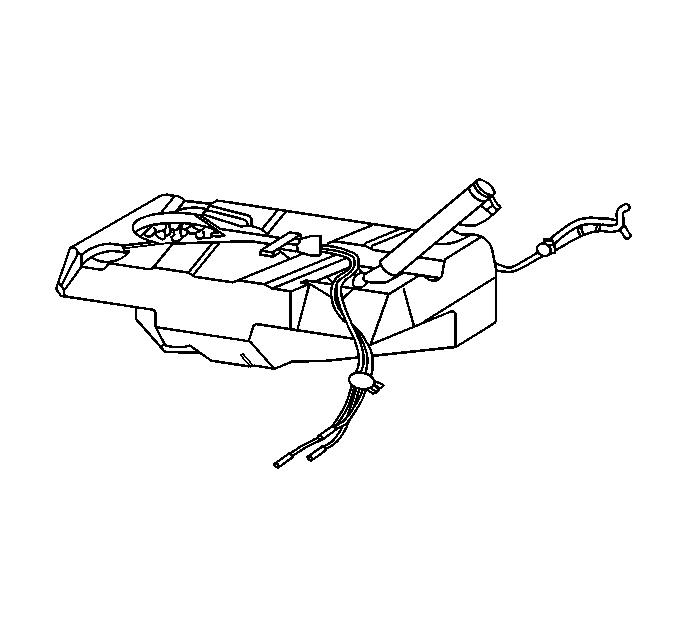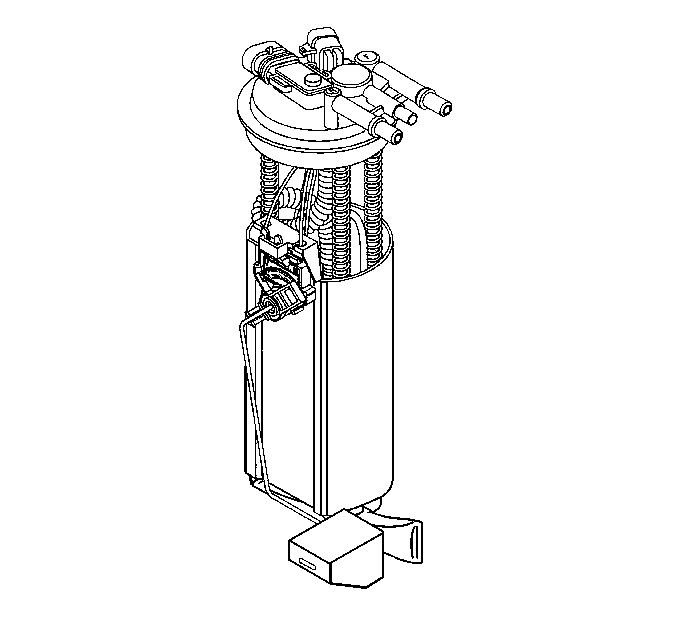For 1990-2009 cars only
Removal Procedure
Important: Only use oil free compressed air to blow out fuel pipes. If the in-line fuel filter is plugged, the fuel tank should be inspected internally and cleaned if necessary.
- Relieve the fuel system fuel pressure. Refer to Fuel Pressure Relief .
- Drain the fuel tank. Refer to Fuel Tank Draining .
- Remove the fuel tank. Refer to Fuel Tank Replacement .
- Remove the fuel sender assembly. Refer to Fuel Sender Assembly Replacement .
- Inspect the fuel pump inlet for dirt and debris. If dirt and debris are found, the fuel pump should be replaced.
- Flush the fuel tank with hot water.
- Pour the water out of the fuel sender assembly opening in the fuel tank. Rock the fuel tank in order to be sure that the removal of the water from the fuel tank is complete.


Important: Whenever the fuel tank is cleaned, the fuel pump fuel strainer must be inspected. If the fuel pump fuel strainer is contaminated, the fuel pump fuel strainer must be replaced and the fuel pump must be inspected.
Important: When flushing the fuel tank, the fuel and water mixture needs to be treated as a hazardous material. The material needs to be handled in accordance with all local, state and federal laws and regulations.

Installation Procedure
- Install the fuel sender assembly. Refer to Fuel Sender Assembly Replacement .
- Install the fuel tank. Refer to Fuel Tank Replacement .
- Add fuel and install the fuel tank filler cap.
- Connect the negative battery cable. Refer to Battery Negative Cable Disconnection and Connection in Engine Electrical.
- Perform the following procedure to inspect for leaks:

| 5.1. | Turn ON the ignition for 2 seconds. |
| 5.2. | Turn OFF the ignition for 10 seconds. |
| 5.3. | Turn ON the ignition. |
| 5.4. | Check for fuel leaks. |
